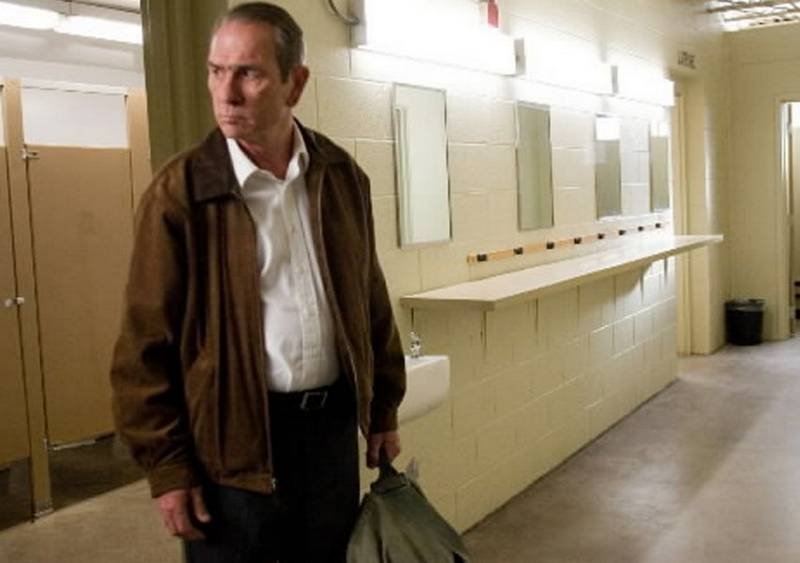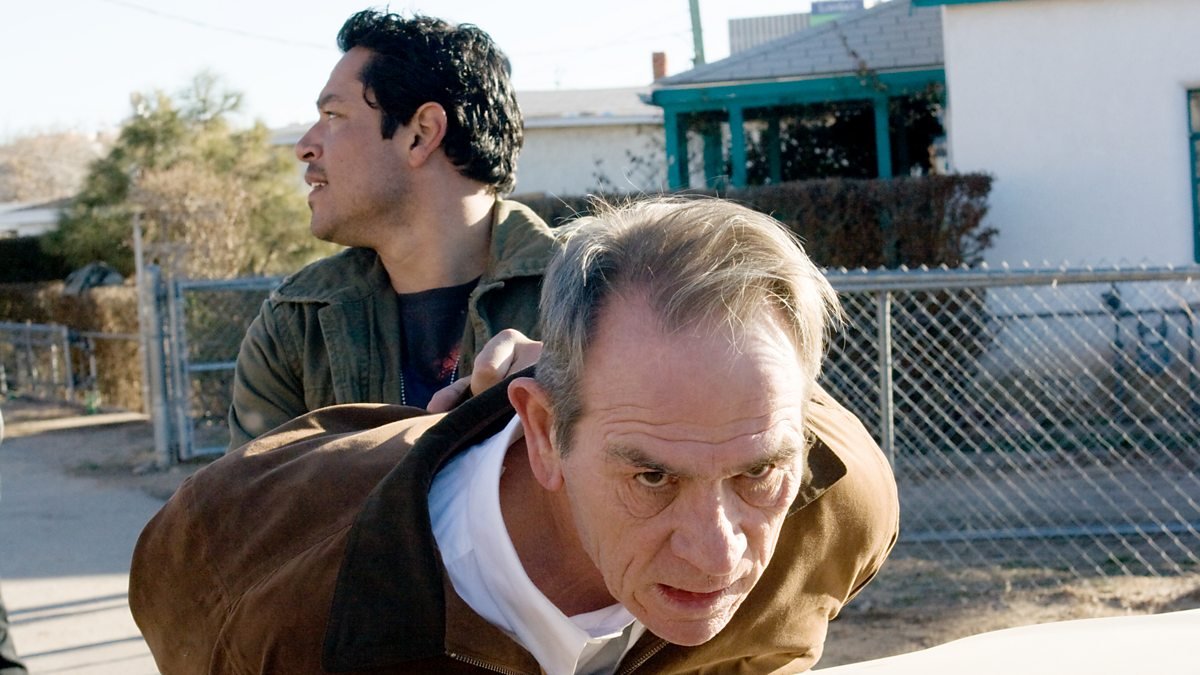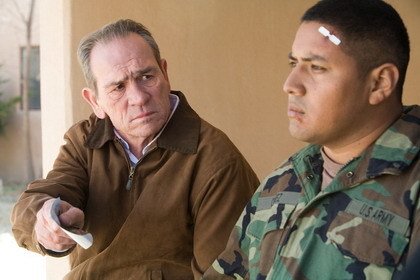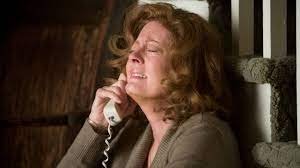IN THE VALLEY OF ELAH
/2007
DIRECTOR: PAUL HAGGIS
CINEMATOGRAPHER: ROGER DEAKINS
WRITER: PAUL HAGGIS (screenplay)/ PAUL HAGGIS & MARK BOAL (story)
BUDGET: ?
GROSS: $29,541,790 (worldwide)
After seeing the junk that was the new James Bond movie: Quantum Of Solace back in 2007 I needed something to reconfirm my appreciation for Paul Haggis. I know he was only one of three writers of the Bond film, but his name in that trio was one of the things that had excited me the most about seeing the film (besides it being Bond and having some pretty cool trailers, etc)...
Haggis is the Academy Award winning writer/director of Crash and before that the creator of one of my favorite television shows of all time, EZ Streets - it didn't even last half a season (I think they only aired 9 episodes) before CBS canceled it, but it was so damn good. He was also the man behind The Black Donnelleys - another great TV show canceled way to soon.
In The Valley Of Elah was released in 2007 and pretty much bombed. I don't know what the budget was, but grossing less than $7 million (domestic) is probably not what they were hoping for. The film was one of many war-themed films released in 2007 with high-profile actors and high aspirations that went nowhere at the box office - anyone remember Rendition and Lions For Lambs?
Now, while I haven't seen those other two, I can tell you that In The Valley Of Elah had a right to hope for bigger things.
The movie is about, to quote IMDb: A career officer (Tommy Lee Jones) and his wife work with a police detective to uncover the truth behind their son's disappearance following his return from a tour of duty in Iraq.
What really struck we about the film was how simple it was. The opening scene has Tommy Lee Jones getting a phone call asking if he knows where his son is. And from there his search begins. There’s no big preamble or anything like that. The movie starts and there we go. And this isn't some grand melodrama either - as one might expect from such a premise.
Lee Jones' character is a retired army officer and so he often keeps his emotions close to his chest. And the film seems to follow suite. I didn't find myself on an emotional roller-coaster, but rather a more steady ride in which the moments of melodrama felt more real and less Hollywoodized because of it. I think however, that this had much to do with the story itself. Things don't go as expected.
I’m not sure how to talk about this without giving too much of the story away, but just to say that Haggis doesn't gloss over characters that you might expect him to. Some discoveries reveal aspects of people that aren't always delved into in Hollywood films in order to provide the audience with a strong emotional attachment that can then be manipulated. But few people are all good. And allowing for some 'bad' to be discovered really strengthened the film and even made some of the overhanded moments less cringe-worthy more impactful.





